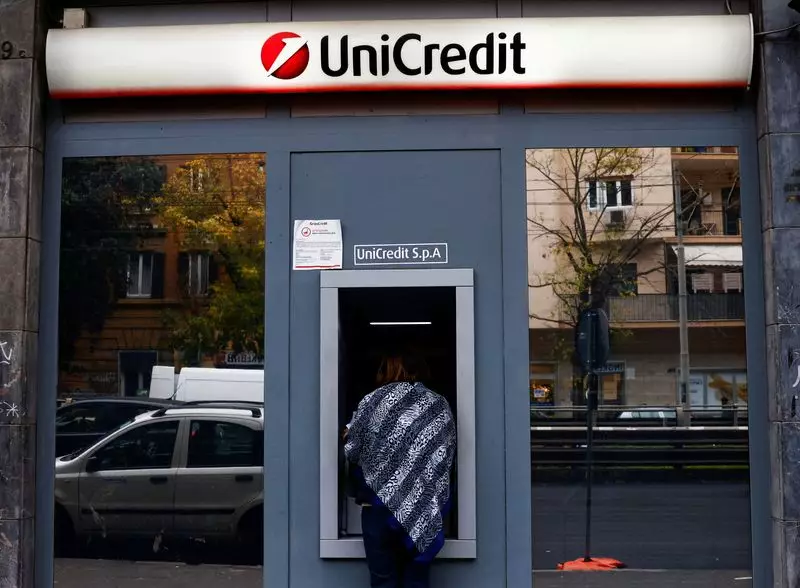In a strategic effort to bolster its growth and enhance its position in the competitive banking sector, UniCredit recently made headlines by filing a binding buyout offer for rival Banco BPM. The offer, valued at approximately 10 billion euros (or $10.5 billion), represents a significant move within Italy’s financial landscape, reflecting both the ambition of UniCredit’s CEO Andrea Orcel and the rapidly evolving market dynamics. As the details surrounding the acquisition unfold, it becomes crucial to dissect the implications of this proposal and what it signifies for both banks and their shareholders.
UniCredit’s decision to initiate this all-share offer has left investors with mixed sentiments. While the proposed exchange ratio offers Banco BPM shareholders a nominal premium, the lack of substantial uplift in share price indicates skepticism among investors regarding the attractiveness of the bid. As reported, Banco BPM shares closed at 7.846 euros, which is considerably above UniCredit’s offering of 6.657 euros. This disparity suggests that market players are either anticipating a more favorable proposal from UniCredit or are cautious about the terms currently on the table.
According to Orcel, who has emphasized the need for the offer to create shareholder value, the firm aims for any potential deal to yield a return of at least 15%. This reflects a broader trend in mergers and acquisitions where firms are increasingly under pressure to justify their valuations through tangible benefits to stakeholders. The demand for value creation sets a high bar, compelling UniCredit to substantiate its stance during negotiations.
The bid for Banco BPM aligns with UniCredit’s ongoing strategy of expanding its market share through domestic consolidation. Orcel’s assertion that merging with Banco BPM would provide superior resilience and diversification in the face of economic challenges is noteworthy. By focusing on the potential for a higher total distribution yield, Orcel seems keenly aware of the competitive pressures impacting traditional banking institutions, which are actively seeking ways to become more agile and robust.
Moreover, the mention of escalating domestic consolidation as a driving factor behind the acquisition initiative raises pertinent questions about the future landscape of finance in Italy. As banks look for synergies and efficiencies, further consolidation might streamline operations but also risks reducing competition in the sector. This balance between growth and market health is a delicate one, ensuring that while individual banks thrive, the broader industry does not suffer from a lack of competitiveness.
UniCredit’s invitation to Banco BPM’s largest stakeholder, Credit Agricole, to engage in discussions signals a tactical maneuver to solidify partnerships that could facilitate the acquisition process. With Credit Agricole’s stake in BPM visibly increasing through derivative investments, it appears that multi-faceted negotiations are on the horizon, potentially influencing the outcome of the proposed acquisition. The collaborative elements of corporate mergers often determine the success or failure of such initiatives, as alignment in interests can lead to more seamless integrations post-acquisition.
In Orcel’s view, the strategic fit and financial metrics must align seamlessly to make this deal viable. This emphasis on disciplined acquisition strategies suggests that UniCredit is keen on avoiding pitfalls that could stem from overpaying or misjudging synergies that might not materialize as expected.
As UniCredit embarks on this ambitious journey to acquire Banco BPM, numerous challenges and opportunities lie ahead. The initial offer may set the stage, but achieving a favorable conclusion will necessitate not just adept negotiations but also a clear communication strategy to reassure investors of the merger’s benefits. For stakeholders, both within and outside these institutions, the situation remains fluid, with the potential for significant shifts in market dynamics as negotiations unfold. Thus, while Orcel’s leadership position is central to this endeavor, the broader impact of the deal on the Italian banking sector and its customers will ultimately determine its success or failure in the years to come.

